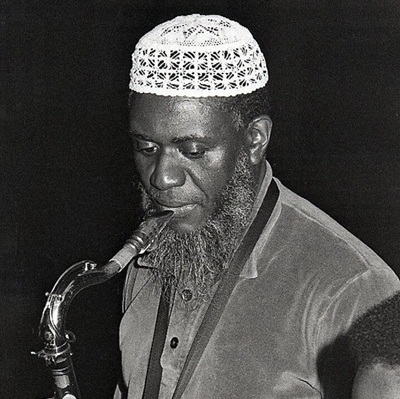.
.
An ongoing series designed to share the quality of jazz poetry continuously submitted to Jerry Jazz Musician. This edition features poems inspired by the late Chuck Mangione, several on other trumpeters, the blues, and nods to Monk, Ornette Coleman, Coltrane, and Sonny Rollins.
Thanks to the poets…and enjoy!
.
.
_____
.
.
photo by William Gottlieb/design by JJM
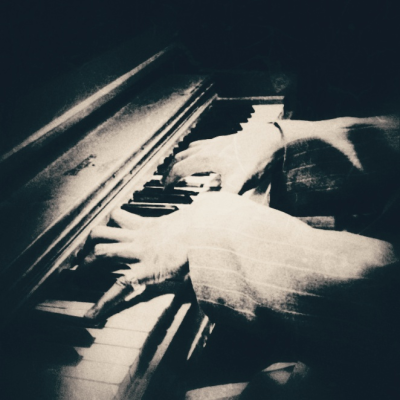
.
.
First Snowstorm of the Year
A feathery
buffeting
all day it swarmed
until our thoughts
were gusts of white
icy shavings
each flake an event
sculpted on air
jazzy mobiles
freeform and
cool as a Miles
Davis solo.
.
by Michael L. Newell
.
___
.
Why Jazz?
Why has this music
survived
for so many decades?
Why jazz on soundtracks
to movies
made decades later.
And Ella
doing the Memorex commercial.
Who could forget that?
Jazz accompanies diners
in five-star rooms.
Clarence played jazz in a rock band.
Jazz sampled by rappers.
Jazz like a backbone
holding a century of emotions
together—
the spine of a musical
biography.
.
by Geer Austin
.
___
.
Under the Influence
Evenings, luxuriating in the glow
of our Tanquerays and Mezcalitos,
the faded haze of dust-jackets
and blue walls, the shadow
of the festive light he cast on things,
how gingerly we’d place each record
on the spindle, set the needle
gently down and watch it slide
into that miraculous groove
beneath the breathy panpipe whistle
of concentration on our lips.
And how we awaited his reaction,
his surprise at that prodigious selection,
his appreciating response, delight,
and fulsome praise.
But it was all too often otherwise:
A bit too neurotic at this early hour,
don’t you think? Let’s have some Monk
or Hendrix now instead.
We’ll save the Ayler for much later.
.
by DB Jonas
.
___
.
Notes
I’m listening to
Ornette Coleman
as I write this
down and the
stark, chaotic
music suits the
ragged mood your
letter’s put me
in, that all too
definite denial
of my final,
doomed appeal
to your emotional
high court.
The horns shriek
and sob while
bass and drums,
insistent as two
children bent on
going in their
contrary directions,
tug the beat.
Yet we have none,
children I mean,
and now so little
else to show
for wasted years
but phantom scars
in all the hidden
spaces lacerated
by our love.
The sax shoots
barbed shafts
into tender
flesh. Trumpet
bullets stop my
heart again and
again but it
keeps thumping
like the bass
–erratically–
and the drums
send some coded
message I can’t
decipher while
your letter’s
lying there blue
ink on vellum
striking without
refrain the
same wrong note.
.
by John Menaghan
.
___
.
Muse on Blue Trane
if you can,
come aboard,
ride Blue Trane
locomotion
hang on
you’ll get ideas
to fit their music notions
derived from spirit, soul
.
by Catherine Lee
.
___
.
Another Love Supreme
The worst things I remember
are how you sunk
into your freshly made wall,
wrapped the concrete and
brick around you
like a dress you never
will buy for me.
Each day you deny me,
then yank me back to your
blue heart,
with a little snatch of sweetness,
meanwhile you are
thick-minded with busy
brilliance, baby, I was
sad-strong and wanting,
methodic and waiting.
Always, always,
waiting for any sliver
of sentence worth
thinking about.
Coltrane said,
I want love supreme,
love supreme,
and I want it
enormous
and engulfing
and high and huge
and mind-splitting
especially after I am
washing myself, still
washing myself
sweet and clean
of so much energy.
I want to be loved, supremely,
emphatically, but if
not then let me find
that fresh-red pair of heels
I was talking about and
let me clack baby, clack on,
or let me fucking
claw
………………………………………..away
……………………………………………………..from
…………………………………………………………………..you.
.
by Jennifer Maritza McCauley
.
___
.
Warm Wind Downriver
Sonny Rollins (tenor sax)/The Bridge
solid as the bridge he used
to play late at night
when he couldn’t sleep,
but his neighbours wished
they could; sound as wide
as a girder left out in the rain
to grow enough rust
to tough out the sharp snow
and blistering summer:
but like the bridge he knows
how to move, incline into storms
not to surrender to their charms
but to put their thunders
to his own solitary use,
judging by the dampness
of his shoes how long to step,
how wild to blow: waiting out
the storm until he could come down
weathered and strong, then show
the people what he’d learnt
up there alone, recalling the legend
of the mystic seer who spent
half his life atop a pillar
contemplating his dreams;
and when they asked him
what he’d discovered
replied that the most
important lesson was timing,
when to sing out and when
to shut up: let the people know
it’s good to climb a bridge
and play for yourself: but better
when you touch hands and get down
.
by Ian Mullins
.
___
.
Christian Scott Atunde Adjuah
Blows the 21st century
From his horn, upturned
Bell pointing towards heaven
So miles and dizzy can hear
And smile with pride, never
Mind that time in Los Angeles
When cops pulled you over and
Profiled you, genius is always
misunderstood
I look inside your trumpet and
Beethoven walks in the hood
Takes pieces of a woman’s pain
You run melodies and 808s
And soul falls like acid rain
Your trumpet immunized me
Free from pain
Your groove absolves you of blame
So, keep playing, sir
Keep your horn turned up
To the sky, as miles and dizzy
Wipe their eyes
We become delirious in a 21st
Century Juneteenth groove,
Fear hears
Your song, and it has
No choice but to
Die
.
by Erren Geraud Kelly
.
___
.
Poem For Pops
……….(after Sappho fragment # 16)
Some think a camouflage army swarming city streets is fine
others think a military parade does the trick to hold
the power reins. But no, to me music
is a force of love…
I listen now to ‘What A Wonderful World’
the version where Louis explains like a Saint
that in the face of disaster and killing,
It’s “Love Baby Love” found in daily life
that’s more important than war power acts
or all the armies of the world kick stepping
in parade formation.
“Oh, yeah”.
.
by Daniel Warren Brown
.
___
.
Flugelhornist
Won’t you come into the garden?
Bring your horn: play that tune
that makes me think of you—
though what makes you happy
is that note beyond
the limn of your aspirations.
Be careful not to prick yourself.
The sharpest thorn yields ruby.
Yet never will it drizzle roses.
Will it rain friends and wine?
Life: not all sunshine and music.
Do not pass on being sanguine
in the search for perfection.
And handle the experience
of real life like a real child.
Forget all the roses that
were ever painted, find
the one that sings to you.
Give thanks to the perfume
of springtime wild blooms
and the fat drone of honeybees.
Does anyone remember love?
Pricked your lip pulling away.
Now you are leaking claret.
.
by Salvatore Difalco
.
___
.
Give It All You Got
………………(inspired by Chuck Mangione)
New York was Superfly City,
provocative, dangerous—
a city on fire—
its thrill of expectation.
The hieroglyphic B train—
her dollar ride to dreamland.
She chewed gum,
wore big hair,
earrings,
and anxiety.
Her Walkman played Chuck Mangione.
Upbeat notes danced in her ears,
oblivious to underground leers.
Another day
of dodging stares
and aggressive comments.
Another day
of brown-nosing the boss
and dealing with micromanagers.
Another day
of vying for the corner office
and the perks from a pinstriped prince
with his six-digit income.
Another day
of doing more than her share.
She gave it all she got.
The gum chewing stopped,
the accent faded,
the earrings shrank,
the hair tamed into a bob.
But blonde highlights
couldn’t hide working-class roots
and nativity.
Her desk had no photos
of life after 9 to 5.
Her social life had limitations—
her world revolved
around her mother.
Her eyes conveyed who she was.
The lower middle management job
kept her sandwiched
between fresh-faced trust fund kids
and a disrespectful male team.
Twenty-five years later,
the ax fell.
The prince never came—
only age and insecurity.
Death freed her from her mother.
Lockdown freed her from office politics.
While jiving to YouTube
and Chuck Mangione,
she ditched her cassettes and Walkman.
She became who she was,
and the gates came crashing down.
.
by Patricia Carragon
.
___
.
Chuck
Eastman trumpet major
Grad to staff proceed
First faculty member
Jazz ensemble lead
Storied career touring
Apt fedora crowned
Flugelhorn transition
Soul’s expression found
30 albums swirling
Spectrum sounds cascade
Rival Gershwin/Bernstein
Fusing styles portrayed
Olympic theme — Emmy
Live performance bold
Global recognition
Platinum, Grammys, gold
Genuinely humble
Philanthropy prized
Legacy transcending
“Feels So Good” vibes
(Risen 22 July 2025)
.
by Mike Mignano
.
___
.
Bill Watrous
the sound surprisingly
small and covered
tagged by one wit
as underwater trombone
far from the brassy swagger
of Dixieland tailgaters
his style bluesy, ultra-smooth
a funkier Tommy Dorsey
with technique to burn
bop chops galore and
a high range that won’t quit
also charms audiences
by humming in harmony
with his own pedal tones
or mimicking a historic sackbut
by blowing in the wrong end
of the horn
some folks have it all
.
by Tim Maloney
.
___
.
Equinox
……..(after Jane Hirshfield’s “The Orphan Beauty of Fold Not Made Blindfold”)
The needle bounces off the vinyl’s label.
We don’t explain ourselves. We show up.
We show up because if we don’t
we’ll die from needful urges.
This is late loss
………………in the summer drive to equinox
……………………………and the stately introduction by John Coltrane—
and McCoy Tyner’s piano-brush on paper leaves no cough or trace.
We feel an urge to fuck at 2 a.m.
You take my hand in the color bar flash of the television
remembering your husband
………………saluting the flag—
and our broken bed twitches-expectant
the aching mattress knows our advance and complains
………………and all this is is need
……………………………a need wanting expedience.
.
by Manuel Grimaldi
.
___
.
Listening to Getz, Remembering Karl
Eyes a-droop like old blinds,
the blood quietly tapping
at my heart’s door. Stan Getz
submerged in the rough chop,
the Delaware and Schuylkill.
Kenny Barron sails his elegant gig,
search party of one in the dark
Copenhagen streets. March crisp in ’91.
Sweet rain on my bare head. Now it rains
in my dreams too.
.
by Kristofer Collins
.
___
.
A Quartet Restorative
blackbird
small flock caw-
caw whoop & swoop just
above crisp green lawn bright
by light breaking through overhead gray
spreading Monk’s Dream of vibrant repartee
piercing the air with measures of insistent precision
to one grounded in the moment of such winged luxury
.
by Terrance Underwood
.
___
.
Monk Alone
Monk alone
at the piano
pushing pedals
to the floor
kissing keys
with a feather
touch skin
barely feeling
the fleeting
caress of cool
ivory rising
up against
his fingertips
as they flee
pursuing new
chords as if
melody moved
forever further
but never quite
out of reach
making him stay
on the bench
bent over
the board
never for
a moment
bored never
lost because
destinations
don’t matter
now nothing
matters but
moving through
the maze no
voices now
demanding
directing
intruding
into his sweet
chaotic solitude
no rude producers
saying how about
playing it this way
or that getting fat
on his dreamy
acute demanding
dexterity nothing
to seek or find
or welcome or
mind or ask
for or give
no whirring
blenders behind
the dimlit bar
at the back
of some club
or some fool
drunk on the
sound of his
own voice
talking over
the notes no
struggle to rise
above the goddamn
ambience cover
charge profit
motive waitress
waiting for her
shift to end
so she can spend
the night in
the arms of some
man who fails
to appreciate her
finer qualities
none of that in
Monk’s head now
alone secluded
in sound until
it all comes
down to one
last flourish
so quiet his
ghost fingers
scarcely move
as smoky notes
drift along
the spotted
ceiling and
dissolve a
broken spell
a hushing
deep inside
his soul.
,
by John Menaghan
.
___
.
Sonny Boy Williamson II
Sonny Boy blows
“Help Me”
on his harmonica,
the urgent tune
louder
than the rumbling train
through Glendora,
his hometown
pinned in the vast flatland
of the Mississippi Delta,
where he shouts out
his desire
to go somewhere…
“Help Me”
“Help Me”
the urgent rhythm
chugging
across the cotton fields
chugging across hearts—
“Help Me”
“Help Me”
.
by John Zheng
.
___
.
Double Vowels,
Double Consonants
Sleep & Jazz
as a sideman
the comfort of the stretch
…………………………….extended
Man! Is that the good night start
the lid closer!
an ear up as entry
regaled by them letters & their companions
forming the great J word completely
…………………………….but still doubling
as a cloud spelling in some
drawn out corners of bedroom pages
& whether it’s the sound of
a Forest Flower.. a Figure in Blue
a Goodbye (to a) Porkpie Hat or
…………………………….a Hi-Fly
slumber is resolved, pleasure is doubled
.
by Terrance Underwood
.
___
.
Daddy Jazz Traveler
“What are you listening to Daddy?”
“That’s the wrong question my child – it’s not what am I listening to
it’s – where am I traveling to”
“Where are you traveling to Daddy?”
“I am spending a day in Paris with Mr. Clifford Brown.
Come child – dance with me and watch the scenery spill through his sounds.”
“Have you ever been to Paris Daddy?”
“Yes. Right now.”
“For real Daddy.”
“Child – for real.
I just left Montreal and I plan on going to New York next.”
“How you gonna do that Daddy?”
“By putting on another record baby girl.
I’ve got Wynton Marsalis at the Vanguard.
He’s on deck.
I’m going to close my eyes
and he’s going to remind me of a summer day on the sidewalk
walking
with your mother.”
“How did you get to Montreal Daddy?”
“By train baby.
Came in underground and by foot
I danced my way into a club in the old town….
Hungarian place – with a Hungarian saxophone.
Horse drawn carriages out door by the St. Lawrence.
The saxophone was the right price – and it was richer than a carriage ride.
I danced your mother around a beer glass at a carved-up table
before strolling through China town and hooking a left down René to our hotel…”
“Why do you keep your eyes closed Daddy?”
“So, I can picture your mother.
She’s sitting atop a piano
and I’m playing the keys looking into her deep star gazing blues.”
“Daddy – where is mommy today?”
“She is behind you child –
step aside so i can pull Daddy away from the piano….
Clifford has a solo and I want to walk along the riverside.
You can walk with us and hold my hand while I hold Daddy’s.
This record is never going to skip a beat.”
.
by Martin Durkin
.
___
.
I Can’t Help But Ask
I take a side street to meet you in this land of private pathways
& weirdly aural aesthetics. Every one of my steps seems dictated
& somebody told me I’d feel free by this juncture in my journey,
but that seems to hold no water. I sidestep puddles,
& the blues I hum under my breath? It’s just my own version
of liquefied grief. If Albert Ayler were to join me
on this walk, could he reassure me
about the future?
Just the notion of free jazz, it means something different
when you try to play it these days. The squawk & the screech,
the dissonance! The basic good of man & how justice
will prevail?
O child of the times!
Is it easy for you to believe that
these days?
..
by Connie Johnson
.
.
_____
.
.

Geer Austin’s poetry has appeared in Poet Lore, Fjords Review, Main Street Rag, BlazeVOX, Neuro Logical Magazine and others, and his fiction has appeared in A/U Magazine, the podcast A Story Most Queer and elsewhere. He is the author of Cloverleaf, a poetry chapbook (Poets Wear Prada Press). He lives in New York City.
.
.
___
.
.

Daniel Warren Brown has loved jazz (and music in general) ever since he delved into his parents’ 78 collection as a child. He is a retired special education teacher who began writing as a senior. He always appreciates being published in journals and anthologies. At age 72 he published his first collection Family Portraits in Verse and Other Illustrated Poems through Epigraph Books, Rhinebeck, NY. Daniel writes daily about music, art and whatever else catches his imagination.
.
.
___
.
.

Patricia Carragon is author of Angel Fire (Alien Buddha Press), Meowku (Poets Wear Prada), The Cupcake Chronicles (Poets Wear Prada), and Innocence (Finishing Line Press). All are available on Amazon.com. She is curator/editor-in-chief of Brownstone Poets, Brooklyn, NY
.
.
___
.
.

Kristofer Collins is the Books Editor for Pittsburgh Magazine. He is also co-curator of the Hemingway’s Summer Poetry Series. His latest poetry collection, Roundabout Trace, was published in 2022 by Kung Fu Treachery Press. He lives in Pittsburgh, PA with his wife and two children.
.
.
___
.
.
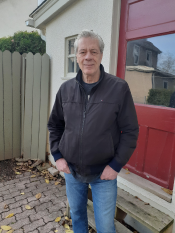
Poet and storyteller Salvatore Difalco lives in Toronto, Canada. He is the author of five books including Black Rabbit & Other Stories (Anvil Press). Recent journal appearances include Cafe Irreal, Fictive Dream, and E-ratio.
.
.
___
.
.
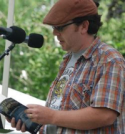
Martin Durkin is a writer currently living in Plymouth MA. To date he has published three books of poetry, and has been included in dozens of anthologies. In 2025 his work will be found in Massachusetts Bards, Otherwise Engaged, and an upcoming anthology entitled, I’ll Get Right On It: Poems on Working Life in the Climate Crisis, by Roseway Publishing. Durkin has had several pieces of his work turned into videos, and art prints for various universities and colleges have been part of a video series entitled, SPEAK IT!, where he delivered poetry about being a military spouse.
.
.
___
.
.

Manny Grimaldi is a father, performance artist, musician, editor, and writer. His body resides in Louisville, but his brains live in Lexington, Kentucky most days of the week. He acts as managing editor of Yearling poetry journal, now in its upcoming fourth year. Manny is printed, or forthcoming, online and otherwise in The Rye Whiskey Review, Pegasus, Moss Puppy, and Disturb the Universe Magazine.
.
.
___
.
.
.
 Connie Johnson has multiple Pushcart Prize nominations for poetry. A California-based writer, she has authored Everything is Distant Now (Blue Horse Press) and I Have Almost Everything (Boats Against the Current). In a Place of Dreams, her digital chapbook (containing audio readings/personal narrative), was published by Jerry Jazz Musician. Click here to view it. Click here to view her collection, Still Wild, also published by Jerry Jazz Musician.
Connie Johnson has multiple Pushcart Prize nominations for poetry. A California-based writer, she has authored Everything is Distant Now (Blue Horse Press) and I Have Almost Everything (Boats Against the Current). In a Place of Dreams, her digital chapbook (containing audio readings/personal narrative), was published by Jerry Jazz Musician. Click here to view it. Click here to view her collection, Still Wild, also published by Jerry Jazz Musician.
.
.
___
.
.
DB Jonas is the author of three poetry collections, Tarantula Season and Other Poems (2023), Flight Risk (2025) and In Dubious Terrain (forthcoming in January 2026). Further examples of his work can be accessed at jonaspoetry.com.
.
.
___
.
.

Erren Kelly is a three-time Pushcart nominated poet from Boston whose work has appeared in 300 publications (print and online), including Hiram Poetry Review, Mudfish, Poetry Magazine, Ceremony, Cacti Fur, Bitterzoet, Cactus Heart, Similar Peaks, Gloom Cupboard, and Poetry Salzburg.
Click here to read “Under Quarantine” — COVID-era poetry of Erren Kelly, published by Jerry Jazz Musician
.
.
___
.
.

Catherine Lee, a widely published neo-Beat, explores poetry’s percussive jazz voice. Lee’s Mentor Wonders poetic drama about mentoring “at risk” public elementary students is available at Amazon and as a Dramatic Reading video at VIMEO. Lee is currently writing a new play, Subconsciously Seeking a Maverick, about how children watching mid-20th-century TV Westerns were programmed with stereotypes about minorities and women, and led to accept open carry of firearms for intimidation. Lee’s extensive artistic biography is found here.
.
.
___
.
.

Tim Maloney is a musician, author, and retired arts administrator living in the Hudson Valley, whose poetry has been published in Bare Root Review, Fortunate Traveller, Ilya’s Honey, Leaflets, Muskeg Review, Poetry On and Off the Wall, Red River Review, Silver Birch Press, Syncopation Literary Journal, and The Talking Stick.
.
.
___
.
.

Dr. Jennifer Maritza McCauley is the author of Scar On/Scar Off, When Trying to Return Home, Kinds of Grace and Neon Steel (2/26). She has received fellowships from the National Endowment for the Arts, Kimbilio and CantoMundo and her work has been a New York Times Editors’ Choice, Best Fiction Book of the Year by Kirkus Reviews and a Must-Read by Elle, Latinx in Publishing, Ms. Magazine and Southern Review of Books. She has been published recently in Boston Review, Columbia Journal, Vassar Review, Acentos Review, Zone 3, Obsidian and The BreakBeat Poets: Latinext (HayMarket Press). She is fiction editor at Pleiades and an assistant professor at the University of Missouri-Kansas City.
.
.
___
.
.

Winner of an Academy of American Poets Prize and other awards, John Menaghan has published 4 books with Salmon Poetry–All the Money in the World (1999), She Alone (2006), What Vanishes (2009), and Here and Gone (2014)—as well as poems and articles in Irish, British, American, and Canadian journals, and given poetry readings in Ireland, England, Scotland, France, Hungary, Canada, and across the U.S. from New York to Honolulu. A fifth volume, composed entirely of his jazz-related poems, is forthcoming from Salmon.
.
.
___
.
.

Mike Mignano, retired Ocala, FL.
Hometown Ithaca, NY. Interests
include: history, travel, guitar,
choral singing, viewing sports
attending theatre and reading
poetry.
.
.
___
.
.
Ian Mullins bales out from Liverpool, England. Collections include Almost Human (Original Plus, 2017), Masks and Shadows (Wordcatcher, 2019), Take A Deep Breath (Dempsey & Windle, 2020), Dirty Sweet (Anxiety Press, 2023), Fear Of Falling Backwards (Cajun Mutt Press, 2023) and NightWatchMan (Alien Buddha Press, 2024.)
.
.
___
.
.
Michael L. Newell lives on the Atlantic Coast of Florida. His most recent book of poems is Passage of a Heart.
Click here to read “What is this Path” – a collection of poems by Michael L. Newell published on Jerry Jazz Musician
.
.
___
.
.
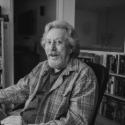
Terrance Underwood is a retired Gas Turbine Package Engineer whose career offered opportunities to work all over the world. A devoted jazz enthusiast, his first memory operating a mechanical device was a 4-speed spindle drop record changer for his father’s collection of 78s.
Click here to read Proceeding From Behind: A collection of poems grounded in the rhythmic, relating to the remarkable, by Terrance Underwood
Click here to read his collection of poems “With Ease in Mind”
.
.
___
.
.
Jianqing (John) Zheng is the author of The Dog Years of Reeducation (Madville Publishing, 2023) and A Way of Looking (Silverfish Review Press, 2021). He teaches at a historically black institution in the Mississippi Delta.
.
.
_____
.
.
Click for:
More poetry on Jerry Jazz Musician
War. Remembrance. Walls. The High Price of Authoritarianism, by editor/publisher Joe Maita
“My Vertical Landscape,” Felicia A. Rivers’ winning story in the 69th Jerry Jazz Musician Short Fiction Contest
More short fiction on Jerry Jazz Musician
Information about how to submit your poetry or short fiction
Subscribe to the (free) Jerry Jazz Musician quarterly newsletter
Helping to support the ongoing publication of Jerry Jazz Musician, and to keep it commercial-free (thank you!)
.
___
.
.
Jerry Jazz Musician…human produced since 1999
.
.
.








